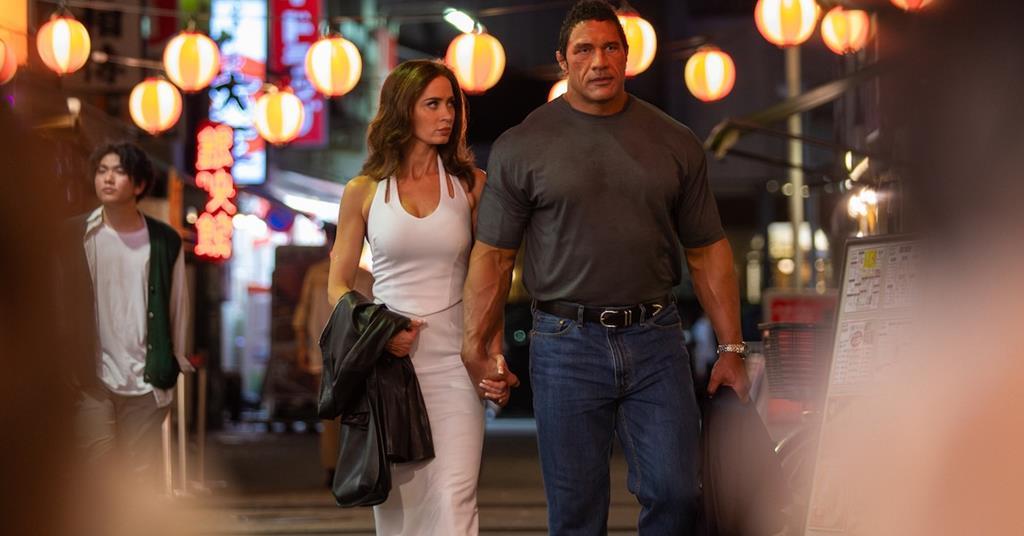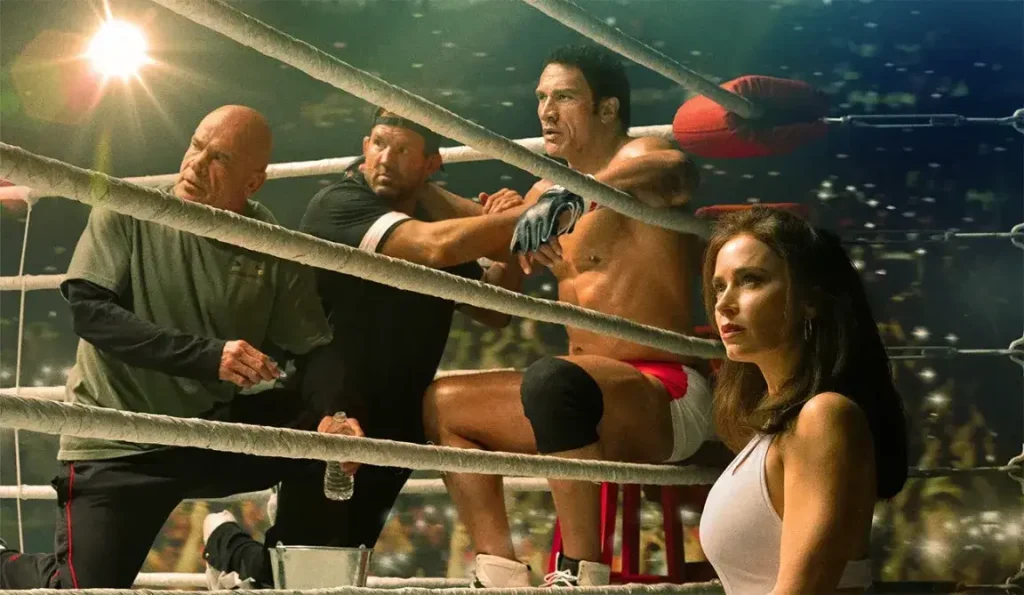Benny Safdie’s The Smashing Machine marks his first solo outing as writer, director, editor, and producer since parting ways with his brother after Uncut Gems. Released by A24, the film dramatizes a turbulent stretch in the life of MMA and bare-knuckle fighter Mark Kerr, with Dwayne Johnson stepping into the role in what is easily one of the most transformative performances of his career.
Set between 1997 and 2000, the film doesn’t chart Kerr’s rise to stardom or celebrate his greatest victories. Instead, it examines a chapter of his life defined by addiction, toxic relationships, and the crushing pressures of a sport that hadn’t yet reached the global popularity it enjoys today. The Smashing Machine is less a conventional sports biopic and more a character study of a man at war with himself, both inside and outside the ring.

The biggest talking point surrounding this film has been Johnson’s performance, and for good reason. Known primarily for crowd-pleasing blockbusters and larger-than-life characters, Johnson completely reshapes himself here. Wearing prosthetics and a wig to physically resemble Kerr, he delivers a raw, vulnerable portrayal of a man breaking under the weight of his demons. While there are brief flashes of his familiar screen persona, for the most part Johnson disappears into the role. It’s the kind of performance that could redefine his career, and one that deserves awards-season attention.
Emily Blunt plays Dawn, Kerr’s girlfriend during this volatile period. Their relationship is portrayed as equal parts supportive and toxic, embodying the highs and lows that defined Kerr’s personal life at the time. Blunt and Johnson have strong chemistry, and their dynamic captures both the tenderness and volatility of such a relationship. Ryan Bader also shines as fellow fighter Mark Coleman, grounding the film in the early culture of MMA and UFC, long before the sport became mainstream. The supporting cast is solid across the board, with each performance adding to the film’s authenticity.

Safdie immerses viewers in the late ’90s setting through sharp production design, period-specific detail, and a score that captures the era’s grit. From clunky Nokia phones to the raw intensity of underground fights, the atmosphere feels lived-in and convincing. While the narrative structure occasionally falters—jumping between high and low moments in a way that feels abrupt—the film remains gripping throughout.
The Smashing Machine isn’t a triumphant sports saga—it’s a bruising, emotionally charged character study. The film’s downbeat tone and focus on Kerr’s darkest struggles may not connect with everyone, but the combination of Safdie’s direction and Johnson’s revelatory performance makes it one of the year’s most compelling dramas. For fans of Dwayne Johnson, this is a must-see—proof that he can push beyond his established screen persona into challenging, transformative territory. For Safdie, it’s further confirmation that he can hold his own as a filmmaker, even without his brother.
The Smashing Machine is tough, gripping, and unforgettable—much like its subject.
Rating: 8/10




